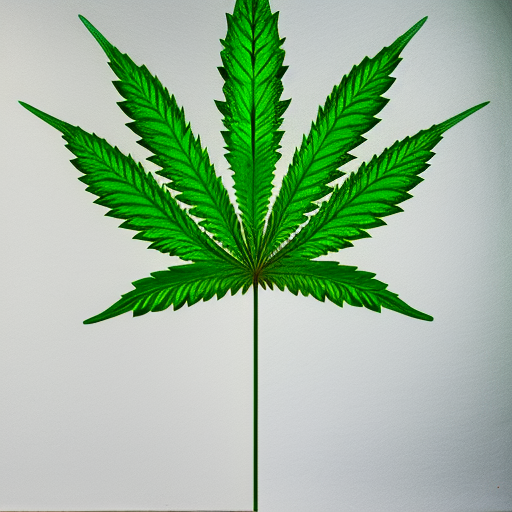
Cannabis sativa L. is a plant that has been used for medicinal purposes for centuries. Recently, there has been an increase in research examining the potential therapeutic effects of cannabis on mental health conditions such as depression and anxiety. In this article, we will explore some recent studies on the use of cannabis as a treatment for depression.
Depression is a common mental health disorder characterized by persistent feelings of sadness, hopelessness, and loss of interest in activities. According to the National Institute of Mental Health, approximately 17 million adults in the United States experienced at least one major depressive episode in 2017. The causes of depression are complex and can include genetic, environmental, and psychological factors.
Standard treatments for depression include psychotherapy and antidepressant medications. However, these treatments may not be effective for all patients or may cause unwanted side effects. Therefore, researchers are exploring alternative treatments such as cannabis.
One study published in the Pharmacology, Biochemistry, and Behavior journal found that delta9-tetrahydrocannabinol (THC), a cannabinoid isolated from Cannabis sativa L., had an antidepressant-like effect in mice models. The researchers also examined other cannabinoids found in cannabis and found that cannabigerol (CBG), cannabichromene (CBC), and cannabidiol (CBD) had similar effects.
Another study published in the Yale Journal of Biology and Medicine examined the effectiveness of cannabis flower for immediate relief from symptoms of depression. The study surveyed 1,819 medical cannabis patients who reported using cannabis to alleviate symptoms of depression. Over 90% of the respondents reported that cannabis was effective in reducing symptoms of depression immediately after consumption.
A systematic review published in BMC Psychiatry examined the use of medicinal cannabis for psychiatric disorders. The review included 83 studies with a total of 3,000 participants. The authors concluded that there was moderate evidence supporting the use of medicinal cannabis for depression.
However, it is important to note that not all studies support the use of cannabis for depression. One study published in Alcohol and Drug Abuse Institute at the University of Washington found that marijuana use was associated with an increased risk of depression in adolescents and young adults.
Despite mixed results, there is growing interest in the potential therapeutic effects of cannabis for depression. The active compounds in cannabis, such as THC and CBD, interact with the body’s endocannabinoid system, which regulates various physiological and cognitive processes, including mood. Additionally, some researchers suggest that terpenes, another class of compounds found in cannabis, may also have therapeutic effects on mental health conditions such as depression.
One study published in Biomolecules found that terpineol, a terpene found in several plants including cannabis, had an antidepressant-like effect in an inflammatory model of depression. The researchers suggested that terpineol may exert its effects through the cannabinoid system and dopamine receptors.
In conclusion, while research on the use of cannabis for depression is still in its early stages, there is some evidence to suggest that it may be effective for some patients. However, more research is needed to fully understand the potential benefits and risks of using cannabis for depression. Additionally, it is important to consult with a healthcare professional before using any alternative treatments for mental health conditions.

